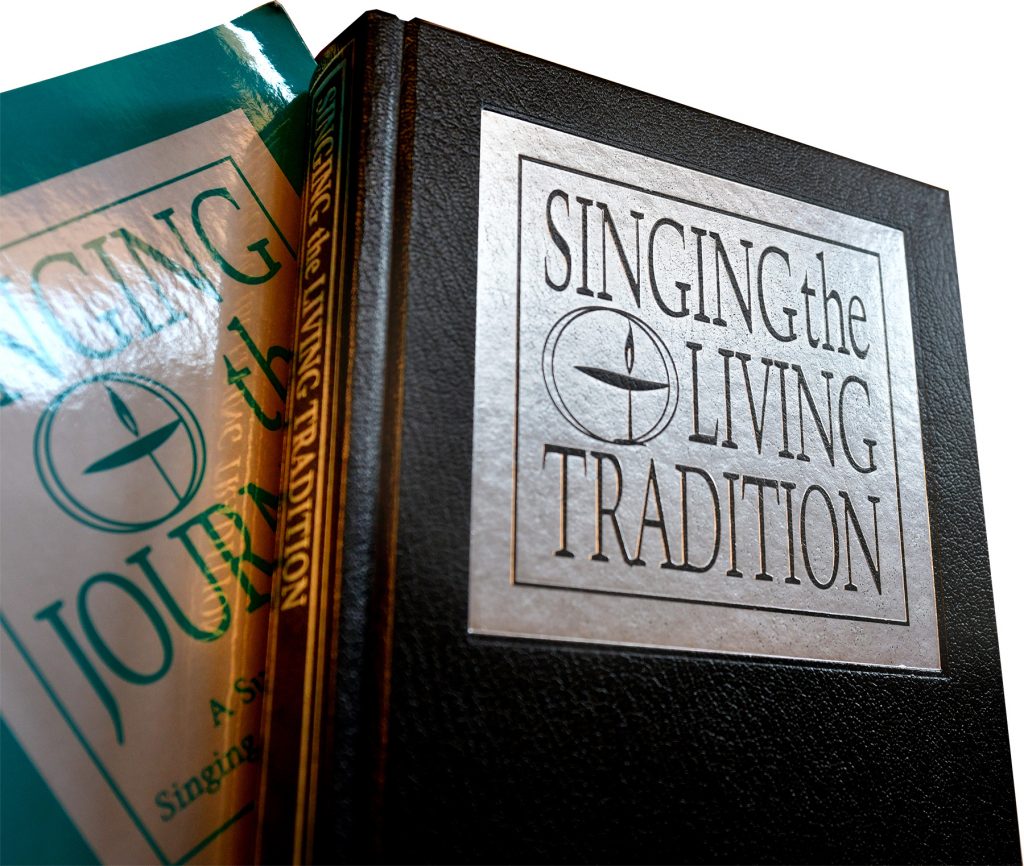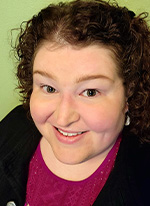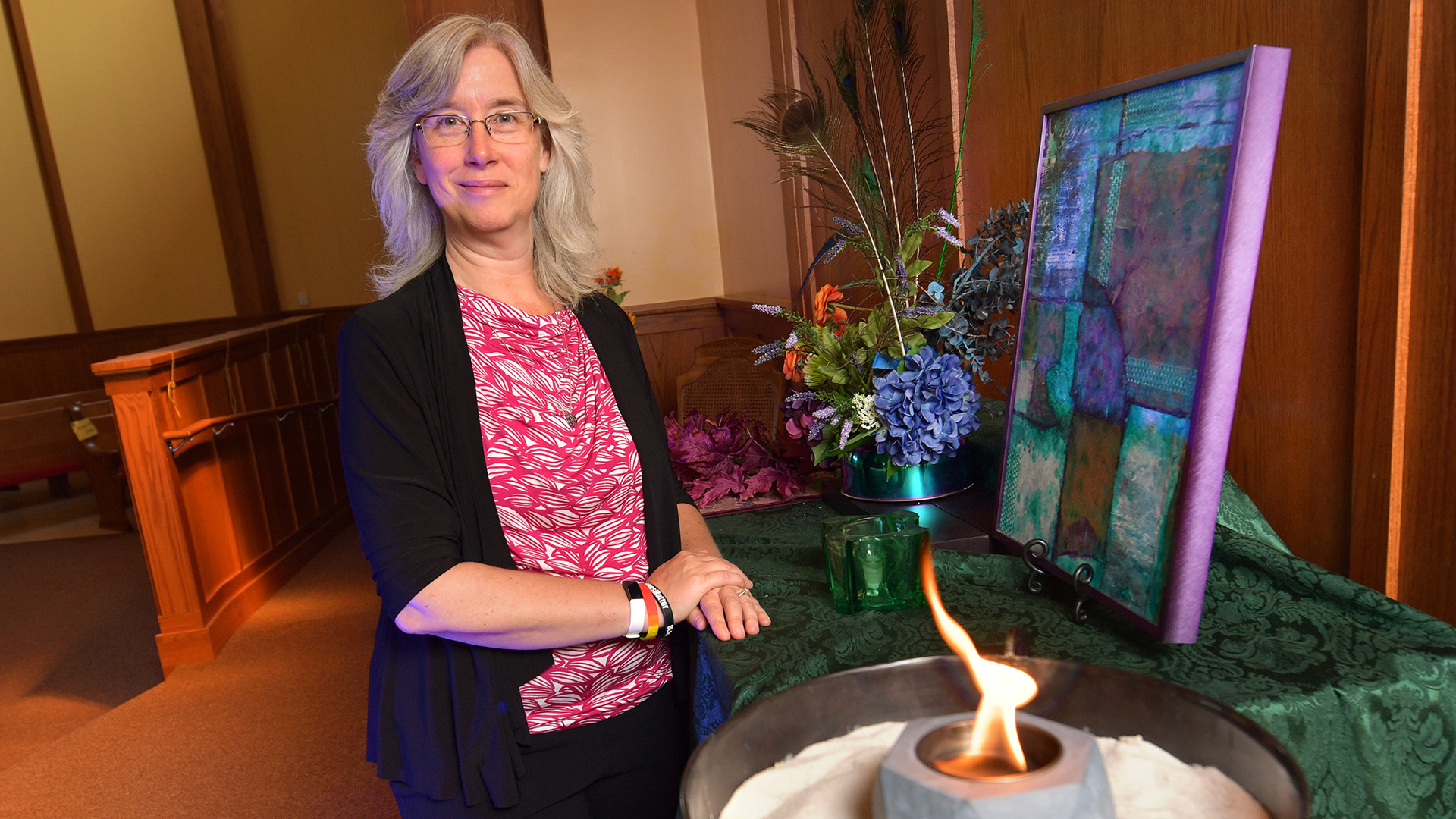So believes the Unitarian Universalist Church, where embracing diversity, in religious thought and everything else, is in the DNA

Asked to summarize the Unitarian Universalist (UU) Church, the Rev. Jennifer Innis cuts right to the chase: “We are a community of fully human people working from a foundation of love to be part of creating a more just world.”
The church’s website calls the church a place to “follow your own path to spiritual and religious truth.” Walking into the sanctuary, guests will find flags representing several major religions, from Christianity to Buddhism, with atheists and pagans included, as well.
Rather than subscribing to a specific theology, the UU Church is guided by seven fundamental beliefs:
- The inherent worth and dignity of every person;
- Justice, equity, and compassion in human relations;
- Acceptance of one another and encouragement to spiritual growth in congregations;
- A free and responsible search for truth and meaning;
- The right of conscience and the use of the democratic process within congregations and in society at large;
- The goal of world community with peace, liberty and justice for all;
- Respect for the interdependent web of all existence, of which we are a part.
According to Innis, the church’s foundational model comes from the Puritan belief that everyone is equal before God. Ministers are present to inspire the local congregation, which governs itself, but is expected to support fellow churches and hold them accountable.
“Different people are invited to step up and be leaders,” said Jesi Laughlin, the Peoria congregation’s director of Lifespan Religious Education. “We’re happy to listen and give voice to everyone, so we have lay leaders speaking throughout the season. That is a UU philosophy, and there are plenty of fellowships and churches that don’t have a settled minister.”
UU pastors spend summer away from the pulpit, giving lay members a chance to lead, said Laughlin. A board is elected with term limits to help govern the church. Staff members assist with day-to-day operations, but the congregation leads the direction of worship.
“Clearly, a very intellectual church,” said Innis, “And to me it’s a congregation that seems to be able to keep evolving, which is lovely and in the moment of the time.”
A little history
Innis has ministered the 300-member Peoria congregation since August 2020, but the Universalist Society of Peoria started in 1843 with just 37 people. Official church recognition was granted in 1857, and in 1868 the congregation dedicated the first UU church building on Peoria’s Main Street. The church moved a few times before settling into a building at 908 Hamilton Boulevard in 1911.
The Hamilton building was designed in the Classical Revival Style. Lydia Moss Bradley, the heralded businesswoman and founder of Bradley University, contributed to its construction. With excellent acoustics and stunning stained glass windows depicting nature scenes, the church was a fitting location for the Sunday Evening Lecture series offered from 1912 to 1937.
Central Illinoisans were invited to hear presentations on a wide range of topics, from science and literature to the social and political issues of the day. Defense attorney Clarence Darrow, suffragette leader Jane Addams, African American activist W.E.B. DuBois, and Nobel Prize-winning philosopher and mathematician Bertrand Russell were among the speakers.
In 2005, the congregation moved from the historic Hamilton Boulevard site to the current building at 3000 W. Richwoods Blvd., designed by architect and church member Les Kenyon. Church records show the congregation was concerned about leaving the historic building and didn’t make the decision lightly, said Innis.
“They were really outgrowing the building downtown, a beautiful, historic building but not modern, not air conditioned, had been added onto two or three times already, and it wasn’t accessible or going to have capacity for that. And then came an offer by Methodist (Medical Center) to buy the property. I think forces converged. A whole team worked enormously hard to make the whole building transition possible.”
The new location was built on old farmland with thriving oak trees the congregation dubbed the Great Grove. This grove can be seen through the window wall in the Fellowship Hall. In the sanctuary, stained glass windows and a 1919 Hinners pipe organ salvaged from the Hamilton building sit alongside new audiovisual equipment that livestreams services to the church’s YouTube and Facebook pages. A religious education wing offers a library, children’s area, and rental space.
The design “picks up on the history of the previous building in a wonderful way,” and is a good expression of how the congregation keeps adapting, said Innis.
‘People still need community’
Between the pandemic and the nation’s social divisions, Innis said she’s seeing more people seeking out avenues of acceptance and meaning.
The Peoria UU Church partners with groups such as Peoria Pride, and displays pride flags and Black Lives Matter banners at the entrance to its parking lot. UU churches typically skew toward an older, white, educated, upper middle class demographic, said Laughlin. Nonetheless, the local congregation works hard to identify its privileges and welcome diversity, she said.
‘The task of the religious community is to bring us out of ourselves’
— Rev. Jennifer Innis
“People still need community,” said Innis. “Peoria has a particular opportunity to be more visible and more of a space where people can feel like they could be here and be okay. We embrace the diversity because we know that we are better for it. We embrace the range of voices because we know that no one of us can be everything and we shouldn’t be. The task of the religious community is to bring us out of ourselves. So if we do nothing else as a congregation, we try to do that and do that in a way that is compassionate, justice-oriented and also authentic.”
“However you find truth and meaning, that is your choice,” added Laughlin. “We support that search. We agree that throughout your life, you’re going to transform those thoughts and they will evolve and change. We believe that each person has certain rights and independent abilities on their own and that we shouldn’t infringe on those rights …. Equity, justice and generosity are all values that we hold dear.”
For more information about the Unitarian Universalist Church, visit peoriauuchurch.org.





